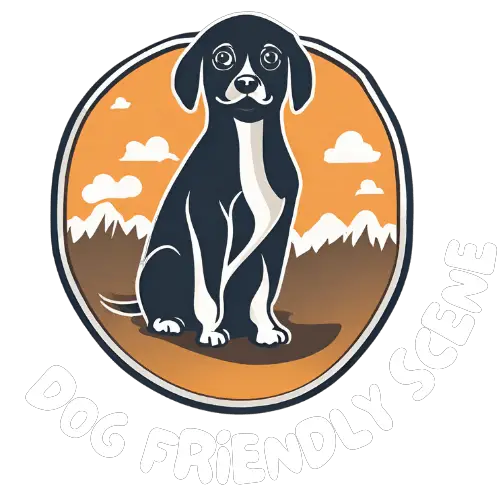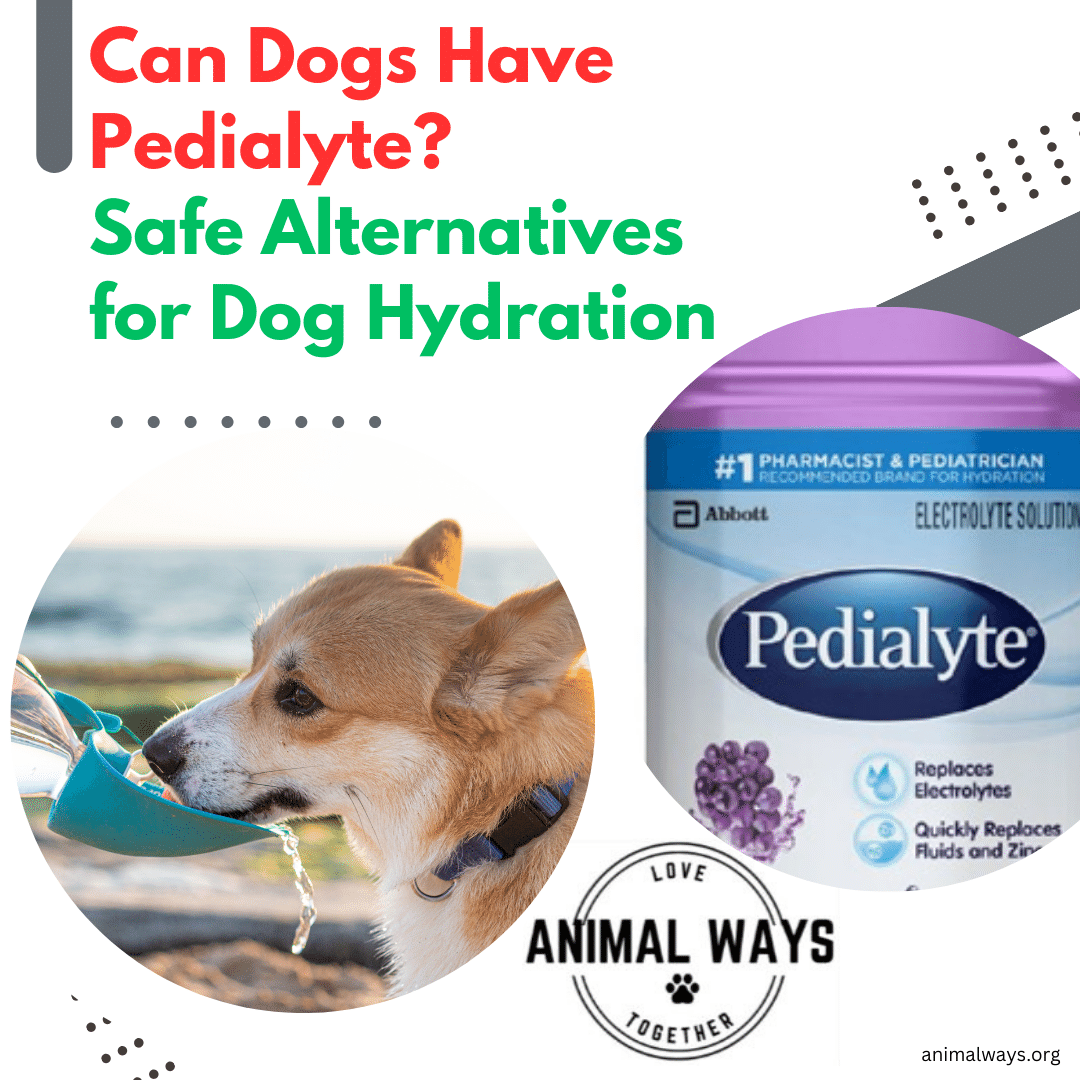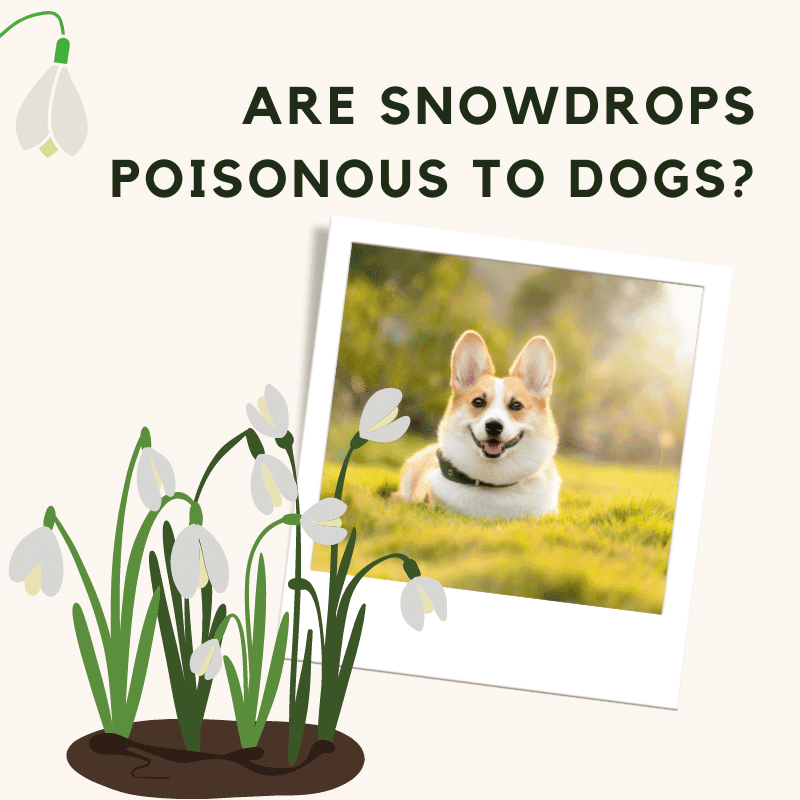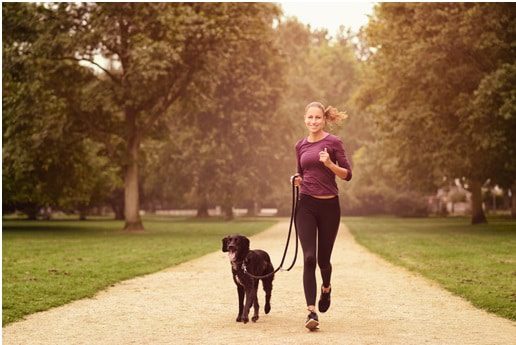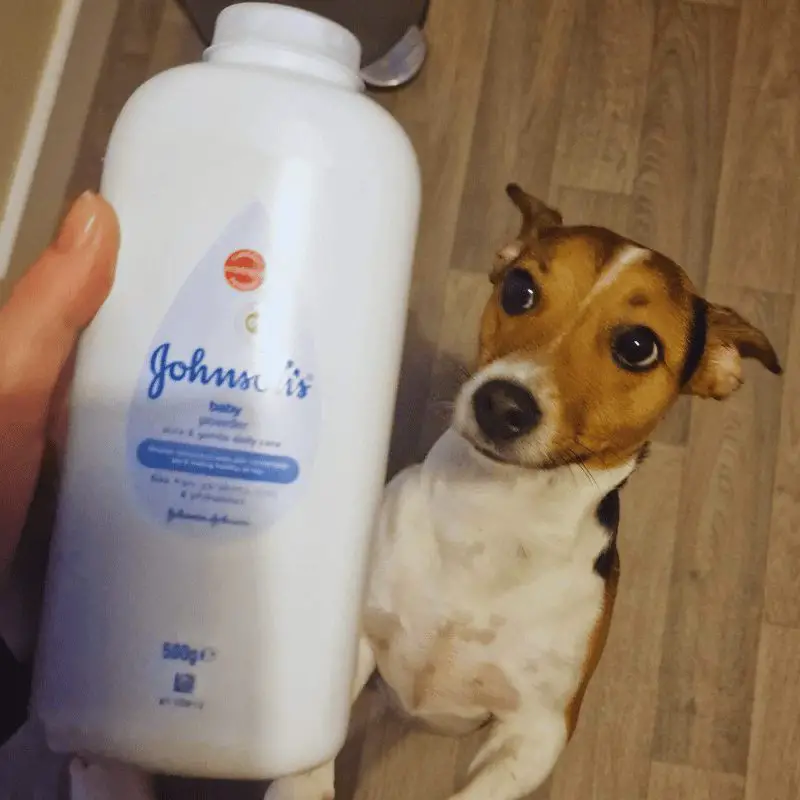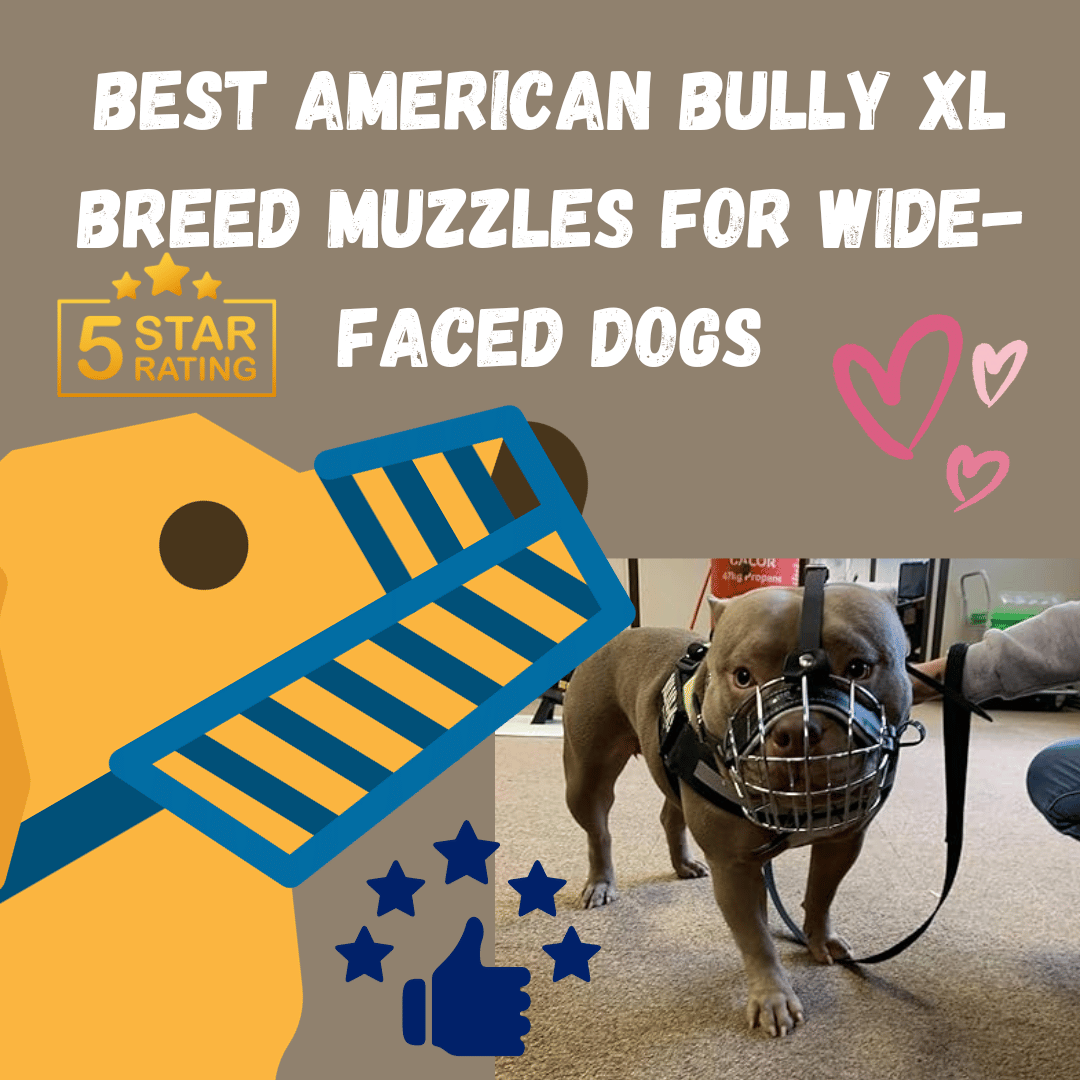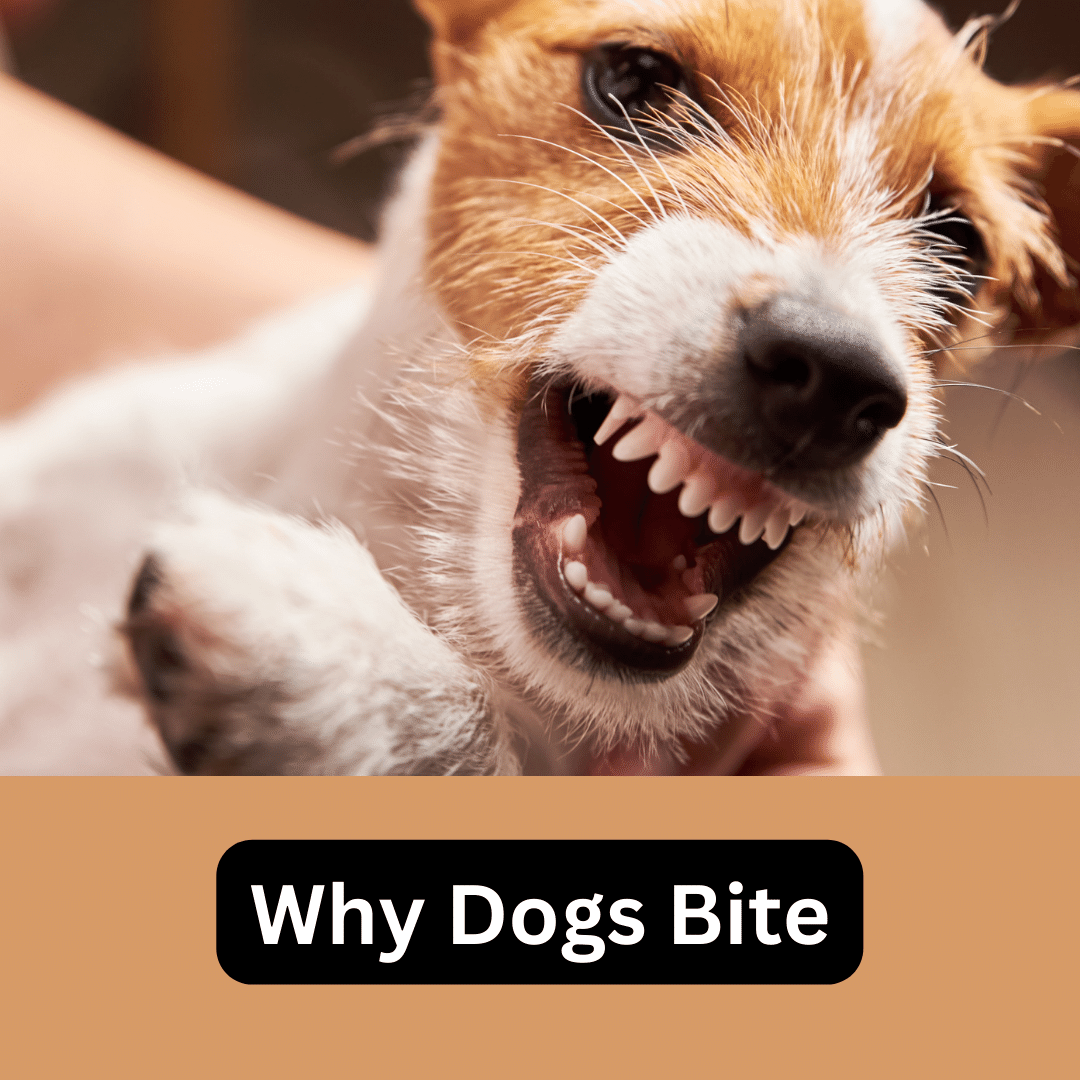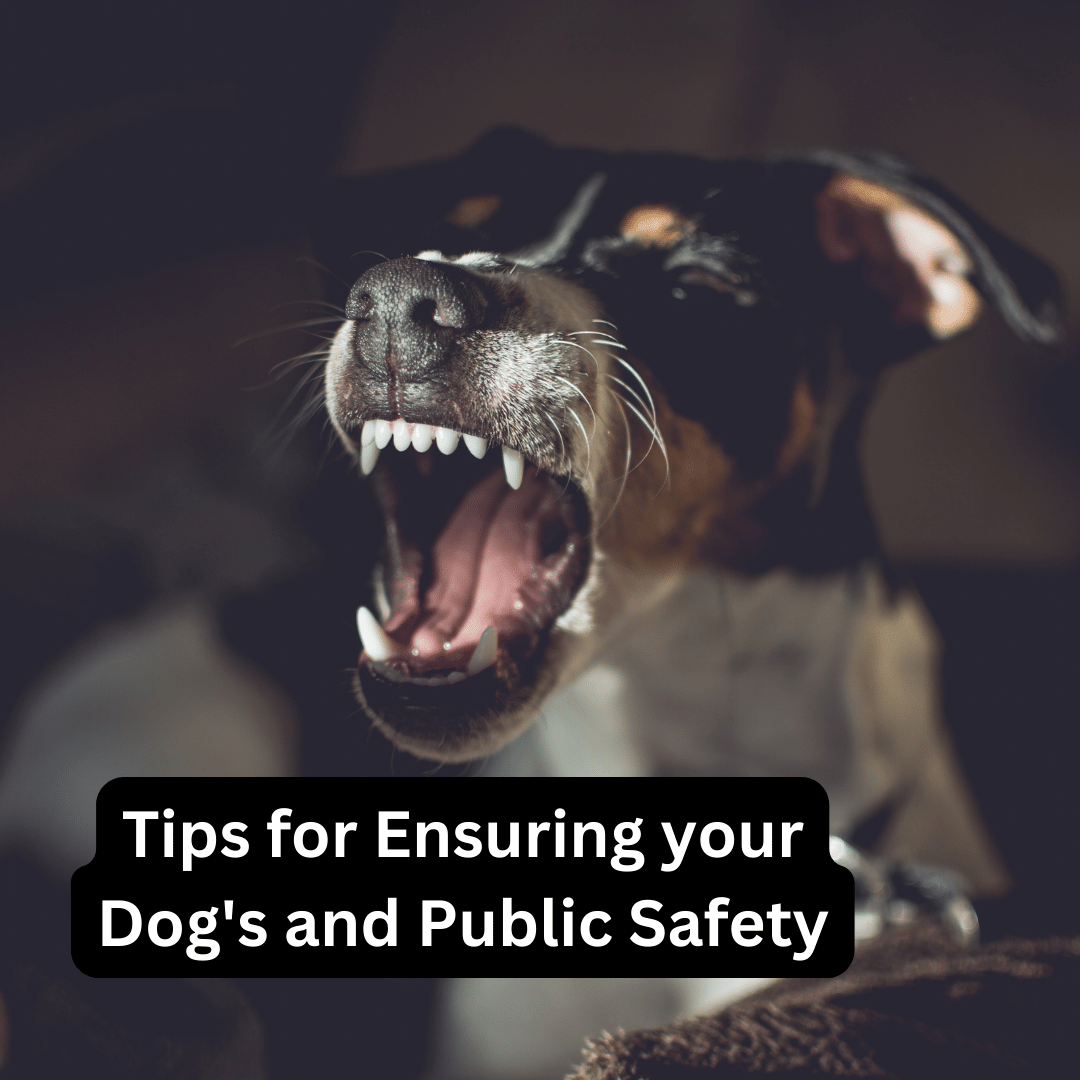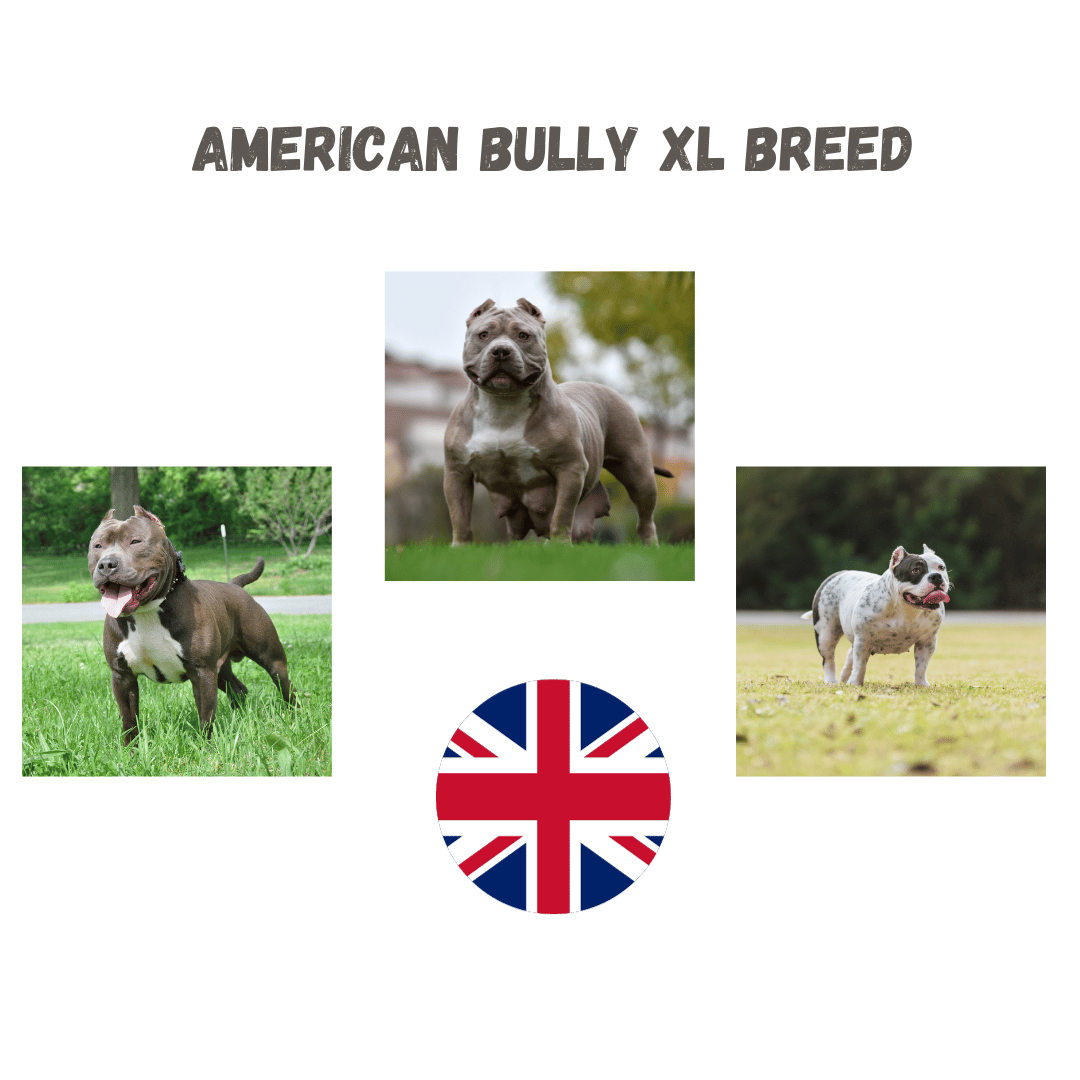As responsible dog owners, we strive to ensure our furry friends remain healthy and happy. However, it’s essential to understand which remedies are safe for our canine companions during illness or dehydration. Pedialyte, a popular human electrolyte drink, is often considered an option.
In this article, we will explore the history of Pedialyte, examine whether it is suitable for dogs, discuss allergy symptoms, suggest alternative approaches and how I make sure my dog stays hydrated.
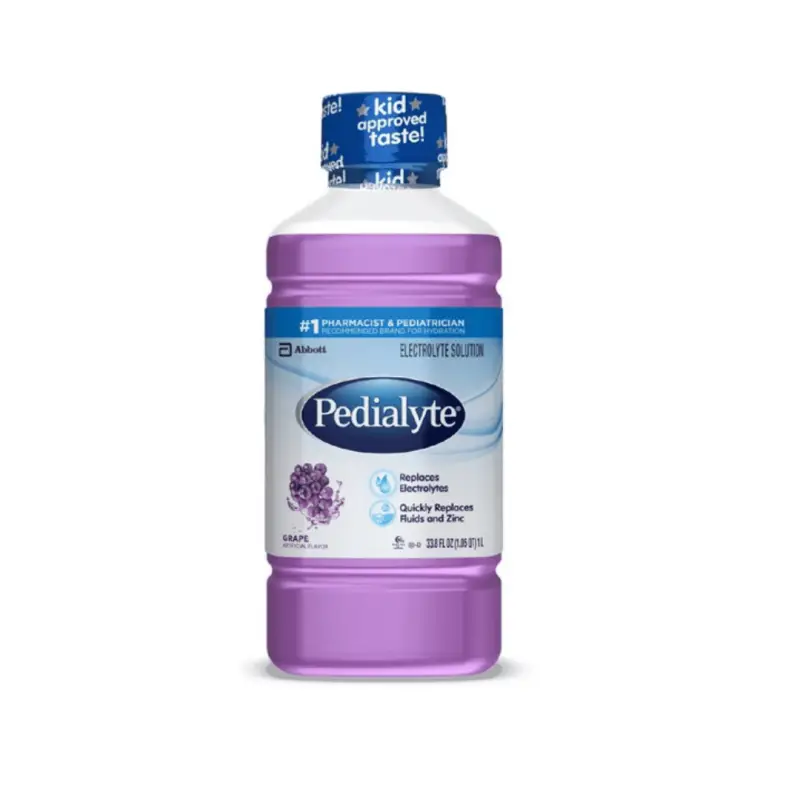
The History of Pedialyte
Pedialyte was created to combat dehydration in children suffering from severe diarrhoea caused by viral infections. Over the years, it also became a go-to rehydration solution for adults. This electrolyte drink, produced by Abbott Laboratories, replaces essential minerals and fluids lost during sickness or excessive sweating. It is important to note that Pedialyte is specifically formulated for humans, not for animals.
Can Dogs Have Pedialyte?
While some dog owners may consider giving Pedialyte to their pets during dehydration, it is not recommended. Dogs have different nutritional requirements than humans; giving them human products can be potentially harmful. Additionally, Pedialyte contains ingredients, such as artificial sweeteners and flavourings, which can be problematic for dogs. It is always best to consult a veterinarian for appropriate solutions when dealing with a dehydrated dog.
Pedialyte: Human Hydration Savior
Pedialyte is an incredible drink that helps hydrate human bodies. It has electrolytes that restore our fluids and balance. It’s perfect for after exercise when we’re sick or dehydrated. We can easily take it with us wherever we go. Pedialyte keeps us feeling great and helps our bodies work better.
Symptoms of Allergies in Dogs
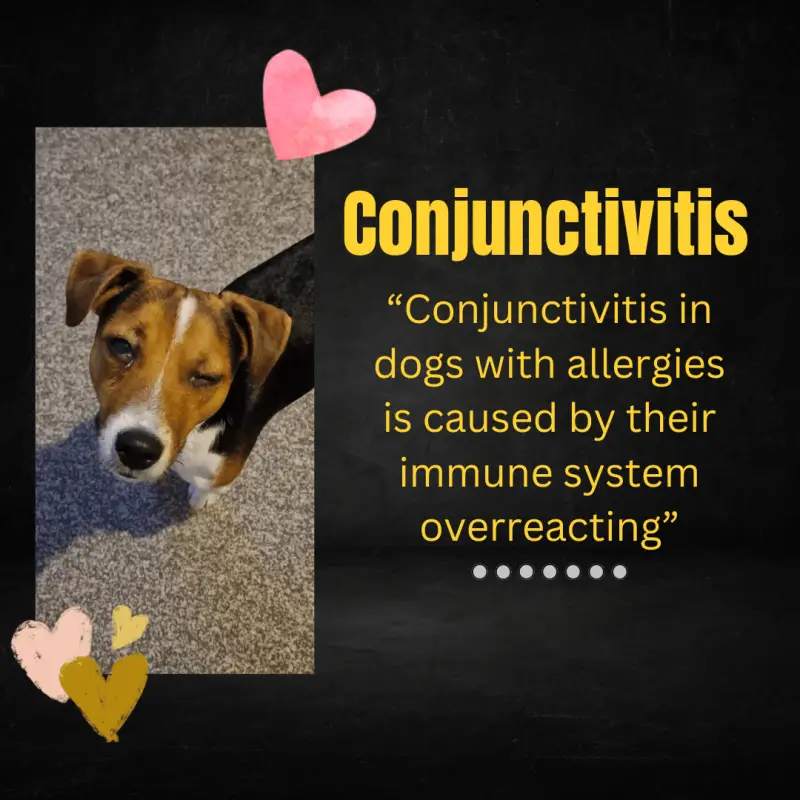
Allergies in dogs can present in various ways, often causing discomfort and health issues. Some common symptoms of giving dog products meant for humans include excessive itching, skin rashes, redness, sneezing, coughing, ear infections, vomiting, and diarrhoea. It is crucial to recognise these signs and consult a veterinarian, as allergies can also be triggered by various factors, such as certain foods, environmental irritants, or even products used around the house.
Alternative Approaches
Regarding dehydration in dogs, there are safe and effective alternatives to Pedialyte. Firstly, always ensure your dog has easy access to fresh water, giving dogs access to shaded areas when the weather is hot. In cases of mild dehydration, simply providing regular water breaks should help rehydrate your pet. If, however, severe dehydration occurs due to vomiting or diarrhoea, it is best to consult a veterinarian promptly. They may suggest a specialised dog rehydration solution or administer fluids intravenously if necessary.
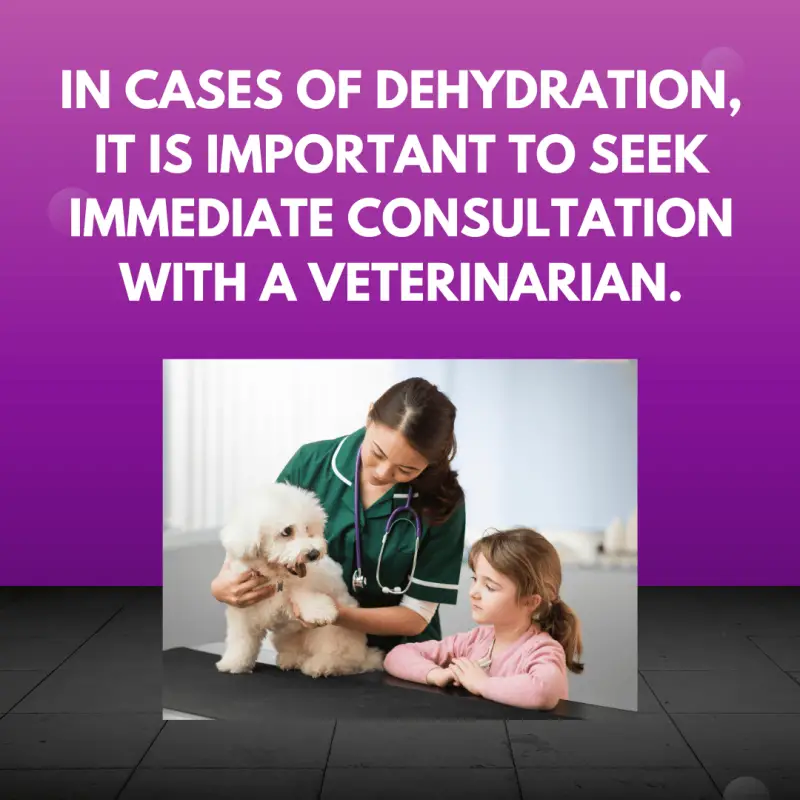
Caring for a Dehydrated Dog: Tips and the Benefits of Goat’s Milk
If you suspect your beloved furry friend is dehydrated, promptly addressing the issue is crucial and don’t reach for potentially dangerous human medication. Dehydration in dogs can lead to serious health complications, so it’s essential to understand the signs and take appropriate measures to rehydrate your pet. In this guide, I will provide tips for owners dealing with a dehydrated dog and the benefits of using goat’s milk as a rehydration solution.
Understanding Dehydration
Dehydration occurs when a dog loses more fluids and electrolytes than it consumes. This fluid imbalance can result from various causes like vomiting, diarrhoea, excessive heat, or insufficient water intake. Dogs can become dehydrated quickly, leading to weakness, organ failure, or even death if not addressed promptly.
Signs of Dehydration
- Dry mouth and sticky gums
- Sunken eyes and decreased tear production
- Lethargy or lack of energy
- Loss of appetite and weight loss
- Dry, tacky skin
- Poor skin elasticity (when you gently pull the skin, it takes longer to return to its normal position)
- Decreased urine output or concentrated urine
Tips for Rehydrating a Dehydrated Dog
Offer fresh water: Ensure your dog has constant access to clean water. Encourage your pet to drink by providing water bowls in various locations, particularly near their resting areas.
Offer diluted chicken or beef broth: When dehydrated; dogs need more than plain water. Introducing small amounts of low-sodium chicken or beef broth can help entice them to drink. Reduce the concentration to make it less salty and more hydrating.
Ice cubes and popsicles: Dogs often enjoy licking or chewing on ice cubes or frozen treats made from diluted broth. This approach can help them stay hydrated while also providing relief from excessive heat.
Use a syringe or a pet-specific water bottle: If your dog refuses to drink voluntarily, consult your veterinarian, who may suggest using a syringe or a specialised water bottle to administer fluids. Always follow your vet’s instructions.
Offer small, frequent meals: Besides water, providing nutritional support is essential. Offer small meals consisting of easily digestible foods like boiled chicken or rice. These meals can help replenish lost nutrients and promote hydration.
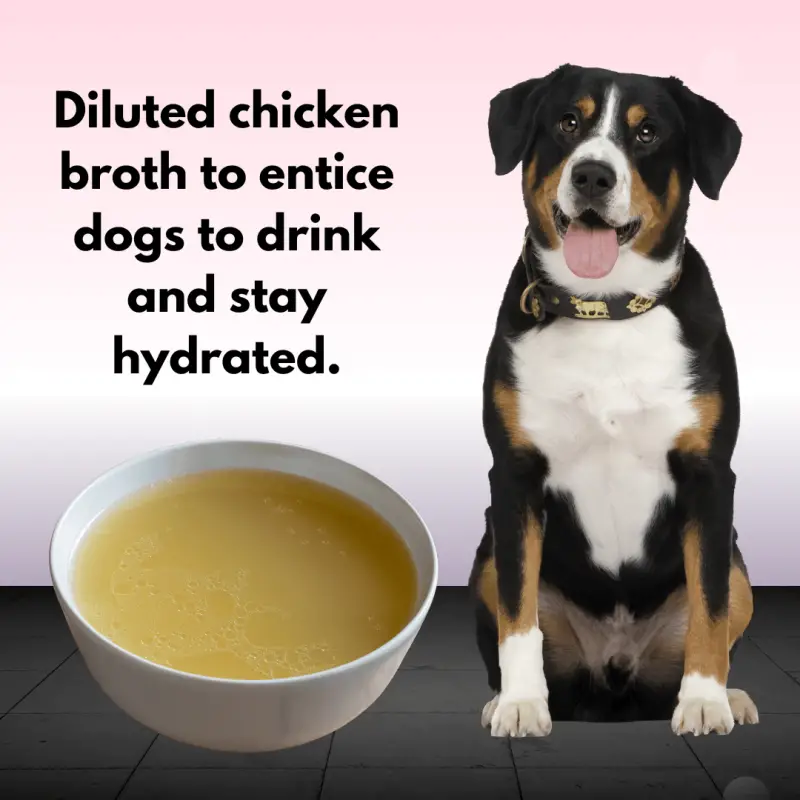
The Benefits of Goat’s Milk
Goat’s milk is a highly beneficial alternative to help rehydrate a dehydrated dog. Here’s why:
Enhanced hydration: Goat’s milk is around 88% water, making it an excellent fluid for rehydration.
Rich in electrolytes: This milk naturally contains essential electrolytes like potassium, sodium, and calcium. These electrolytes help restore the body’s fluid balance and promote proper organ function.
Easily digestible: Goat’s milk contains smaller fat molecules and less lactose than cow’s milk, making it gentler on a dog’s digestive system. It’s an excellent option for dogs with sensitive stomachs or those recovering from digestive issues.
Strategies for Keeping My Dogs Hydrated: My Secret to a Healthy Canine Hydration Routine
I understand the concerns of having a dog who gets dehydrated. I had a similar experience with my older dog. To help him, I did a few things. First, I added warm water to his dry food and let it soak in. This made his kibble softer and gave him more hydration because kibble doesn’t have much water in it.
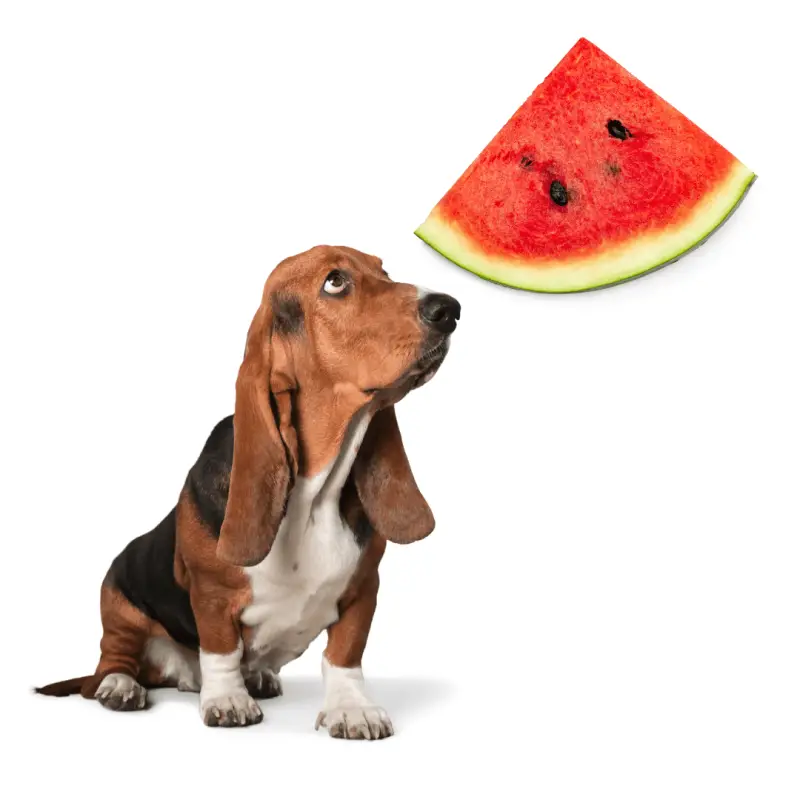
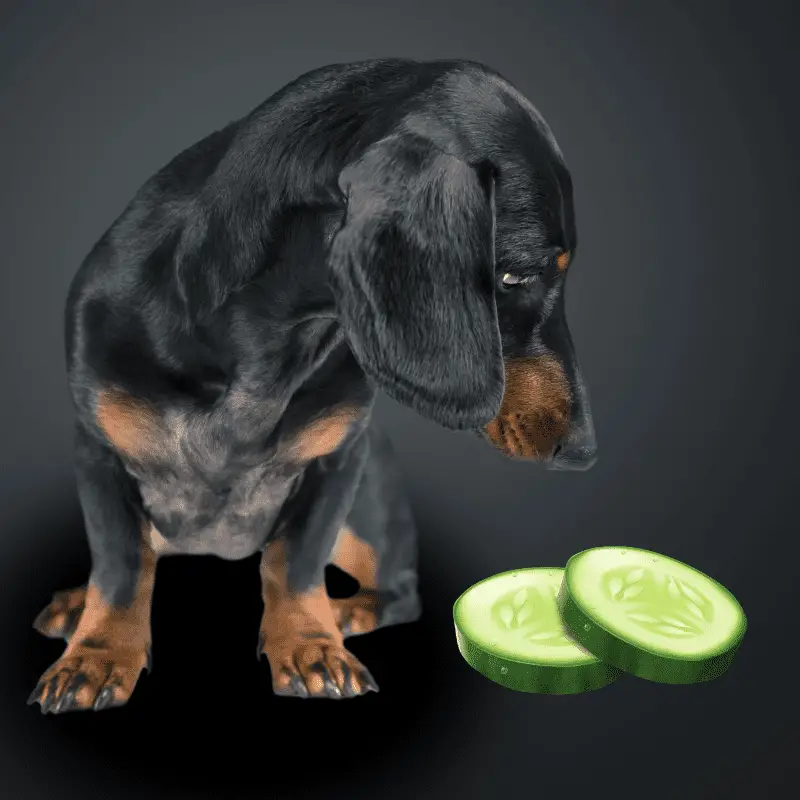
I also added toppings like cucumber and watermelon to his food. These foods have a lot of water in them, so it helps him stay hydrated. I also gave him 50ml of goat milk each day, which not only gave him extra hydration but also provided him with extra nutrients.
All of these things helped me deal with my dog’s dehydration before it became a problem and ensured he was getting enough water to stay healthy.
Older dogs, particularly in warmer weather, are more susceptible to dehydration due to their difficulty regulating body temperature. However, my strategy aims to benefit not only older dogs but all dogs.
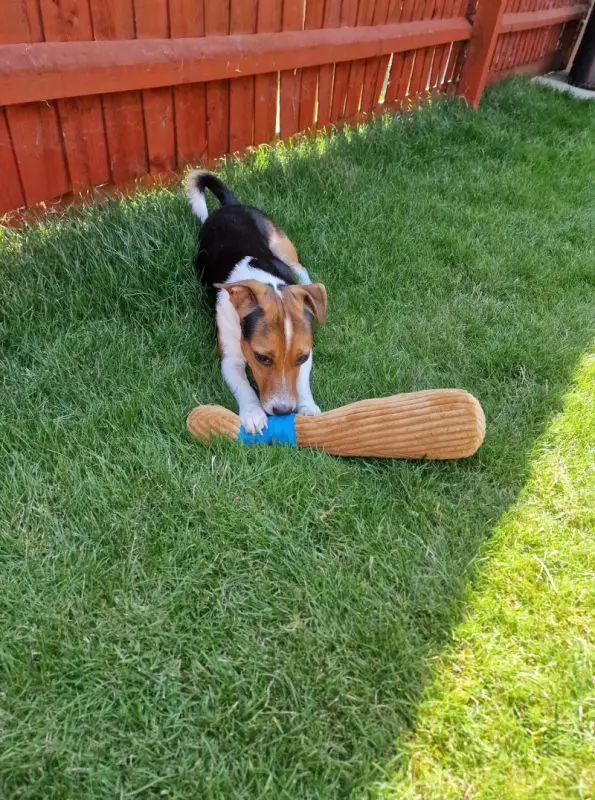
Conclusion
Dehydration is a significant health concern for dogs, and it is crucial to act promptly if you suspect your pet is dehydrated. By offering fresh water diluted broth, using syringes if necessary, and providing small but frequent meals, you can help rehydrate your dog and support their recovery. Additionally, goat’s milk can be an effective and beneficial alternative due to its high water content, electrolyte composition, and easy digestibility. If your dog’s condition worsens or dehydration persists, consult your veterinarian for appropriate medical advice and treatment.
While Pedialyte has been proven effective for rehydration in humans, it is not recommended for dogs due to the differences in nutritional needs and the potential risks associated with certain ingredients.
